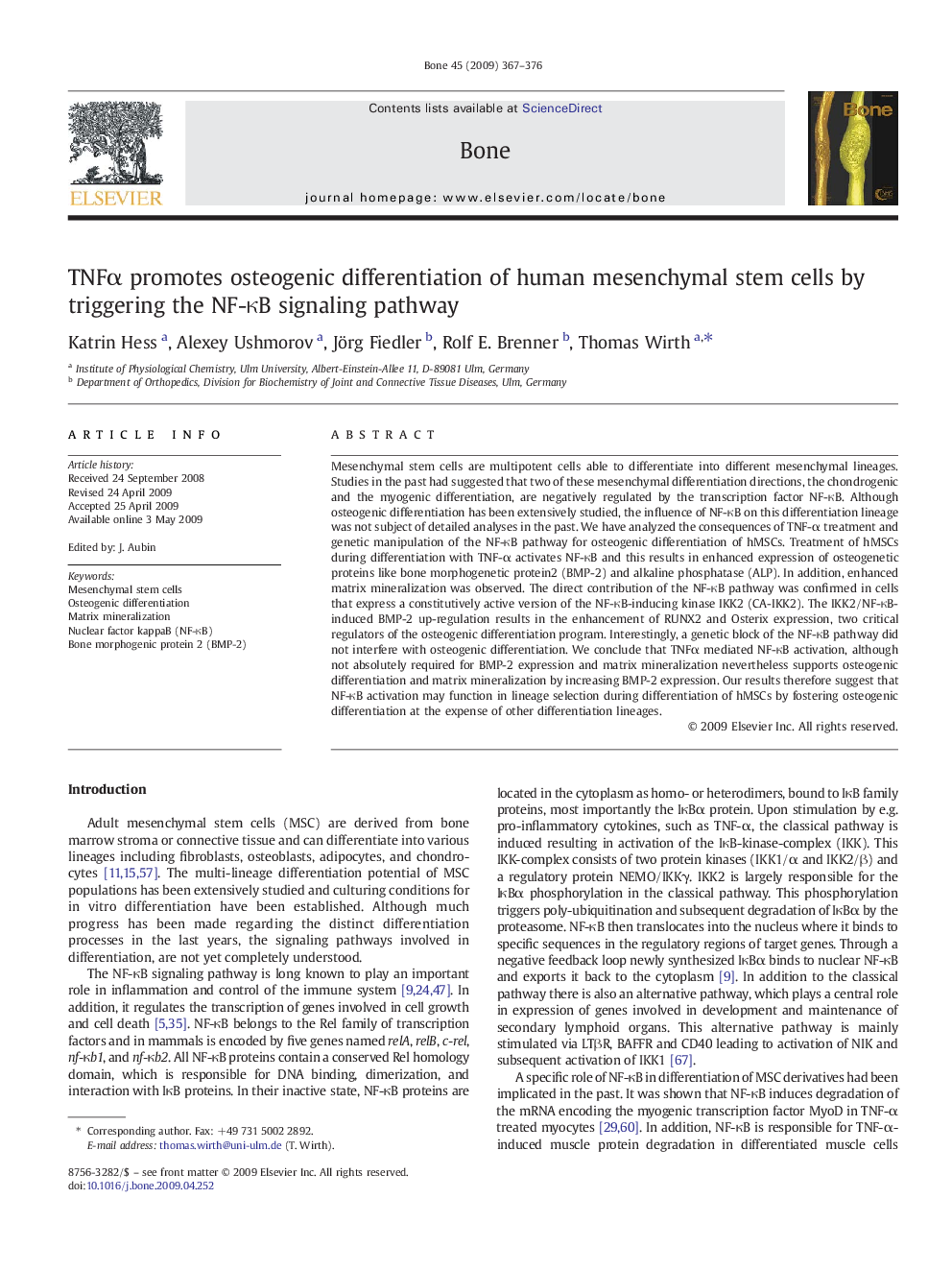| Article ID | Journal | Published Year | Pages | File Type |
|---|---|---|---|---|
| 5892198 | Bone | 2009 | 10 Pages |
Abstract
Mesenchymal stem cells are multipotent cells able to differentiate into different mesenchymal lineages. Studies in the past had suggested that two of these mesenchymal differentiation directions, the chondrogenic and the myogenic differentiation, are negatively regulated by the transcription factor NF-κB. Although osteogenic differentiation has been extensively studied, the influence of NF-κB on this differentiation lineage was not subject of detailed analyses in the past. We have analyzed the consequences of TNF-α treatment and genetic manipulation of the NF-κB pathway for osteogenic differentiation of hMSCs. Treatment of hMSCs during differentiation with TNF-α activates NF-κB and this results in enhanced expression of osteogenetic proteins like bone morphogenetic protein2 (BMP-2) and alkaline phosphatase (ALP). In addition, enhanced matrix mineralization was observed. The direct contribution of the NF-κB pathway was confirmed in cells that express a constitutively active version of the NF-κB-inducing kinase IKK2 (CA-IKK2). The IKK2/NF-κB-induced BMP-2 up-regulation results in the enhancement of RUNX2 and Osterix expression, two critical regulators of the osteogenic differentiation program. Interestingly, a genetic block of the NF-κB pathway did not interfere with osteogenic differentiation. We conclude that TNFα mediated NF-κB activation, although not absolutely required for BMP-2 expression and matrix mineralization nevertheless supports osteogenic differentiation and matrix mineralization by increasing BMP-2 expression. Our results therefore suggest that NF-κB activation may function in lineage selection during differentiation of hMSCs by fostering osteogenic differentiation at the expense of other differentiation lineages.
Related Topics
Life Sciences
Biochemistry, Genetics and Molecular Biology
Developmental Biology
Authors
Katrin Hess, Alexey Ushmorov, Jörg Fiedler, Rolf E. Brenner, Thomas Wirth,
